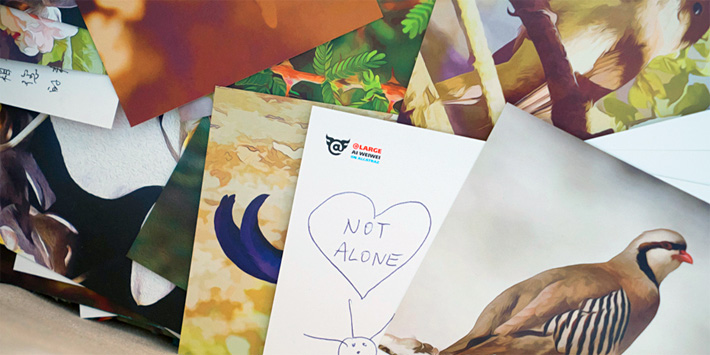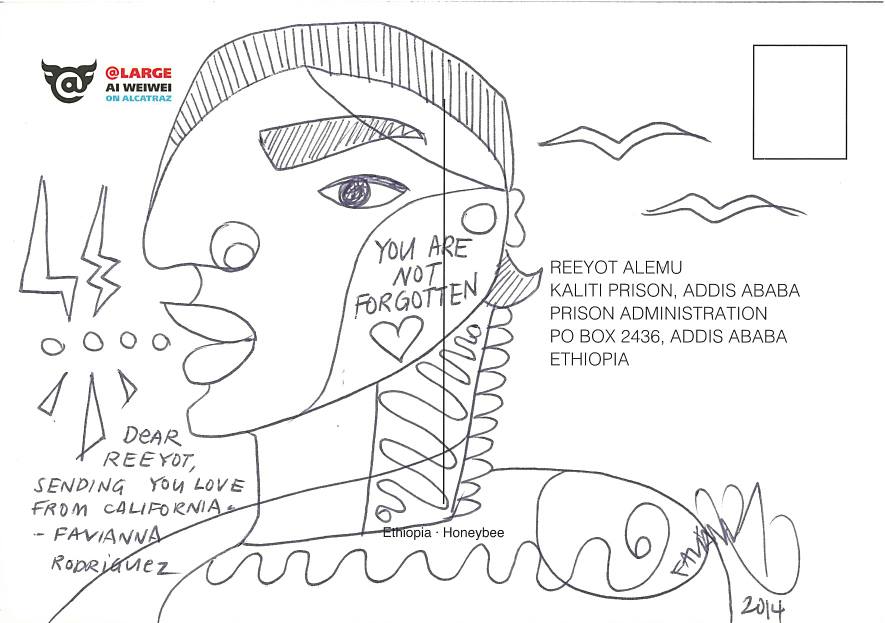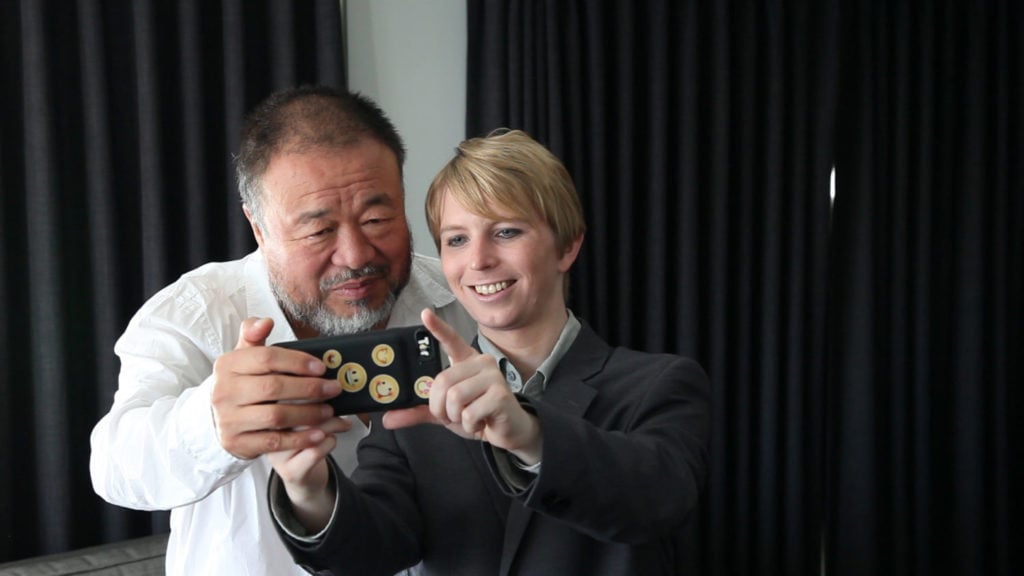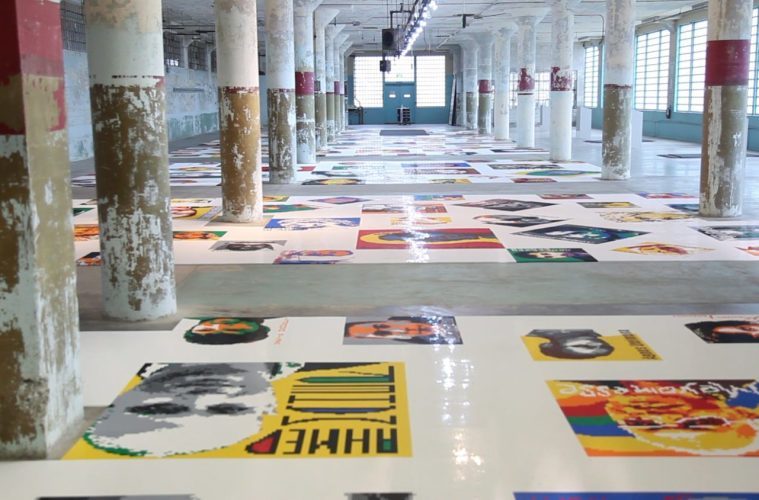The new film Ai Weiwei: Yours Truly tells the story of the blockbuster site-specific exhibition @Large: Ai Weiwei on Alcatraz — the entire story. Beginning with behind the scenes, making-of documentation during the creative process, stretching back into salient inspirations from the artist’s early life and family history and forward to his own arrest in China, the film narrates not only the concept and execution of the ambitious installation but also follows the indelible effect on everyone it touched.
From the meditative, thoughtful pace of the studio footage and interviews with Haines, Ai Weiwei, his family members, and salient cultural figures, the film builds toward the completed installation which is then explored and explained with a lot of care and detail. It’s all very elegant and informative, and its on-site views are experiential and evocative, which is especially helpful if you were not among the 900,000 people who visited. Then the third act of the film takes a notable turn — going into deeper focus on the portrait subjects’ own experiences with the project and in particular following its outreach actions.
Backing up a bit, the @Large exhibition wasn’t at Alcatraz by coincidence. It was imagined as a location by the film’s director Cheryl Haines, who is also the founder of San Francisco’s FOR-SITE Foundation which produced the exhibition, as a direct response to Ai Weiwei’s imprisonment, house arrest and eventual exile and with the explicit goal to draw global attention to the plight of political prisoners and exiles around the world.

One facet of this features the Trace Lego portraits, depicting the faces and names of 176 incarcerated or exiled people. The work’s companion piece, Yours Truly, invited exhibition visitors to write messages to be mailed to those prisoners.

Yours Truly postcards from Ai Weiwei’s @Large
It turns out that the postcard writing idea was directly based on one of Ai Weiwei’s earliest memories. His father, a dissident poet, was imprisoned with his young family in the 1050s in a labor camp in the Gobi Desert. It was a difficult, violent life. One day, the father received an anonymous postcard from a follower of his writings, a gesture which had a transformative effect on them both. It was that feeling he wished to create and share with those imprisoned in our time. By the end of @Large, over 90,000 postcards had been sent.

Yours Truly postcard

Ai Weiwei and Chelsea Manning, still from Yours Truly
And at a certain point, the team started hearing back. Both families and the prisoners themselves were getting in touch, extremely grateful and also curious. And as the team realized that the cards were getting through, they decided to do follow-up interviews with some of those people. The creative dialogs throughout the film are insightful, the footage is beautiful, the biography deepens our understanding of Ai Weiwei’s process, material choices, and intentions for the work; but it’s this last part, the interviews with freed prisoners of conscience and/or with their families, that really touch the heart. By the time you get to Ai Weiwei’s sitdown with Chelsea Manning, the film has become a wholly divergent experience from where it began — an experience that if possible is even more full of persistent hope and meaningful emotion than even the landmark exhibition itself.
Ai Weiwei: Yours Truly opens in L.A. via Laemmle On Demand on July 8.
Advertising disclosure: We may receive compensation for some of the links in our stories. Thank you for supporting Irvine Weekly and our advertisers.

